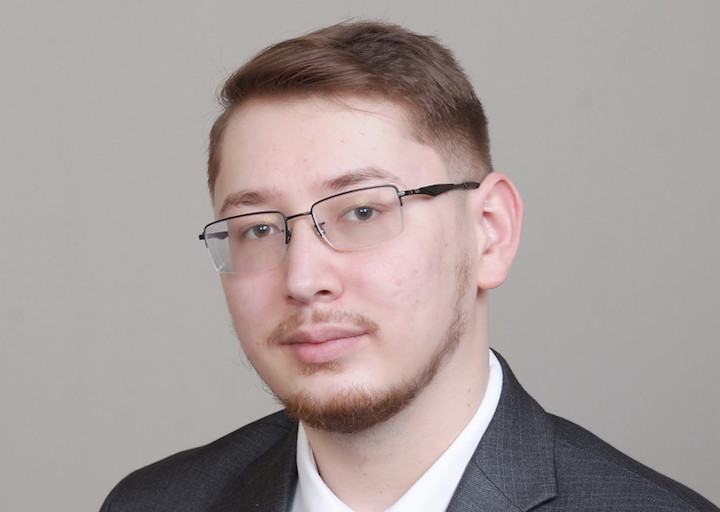Posted on February 14, 2022 by COLFA

Devin Lukachik
Interview with Devin Lukachik, 2022
Devin, congratulations are in order for earning national certification as a healthcare interpreter through CCHI, the Certification Commission for Healthcare Interpreters. Can you tell us how you got here?
Thank you very much. I was first recommended to UTSA’s Translation and Interpreting Studies program by my advisor, who thought the classes would be a good way to challenge my Spanish abilities. I took my first class with Dr. Wallace, the professor that teaches these classes, in Spring of 2020. Before that, I didn’t have any experience translating or interpreting. As I began to learn more, however, I learned how interesting, useful, and practical the skill could be, particularly with my career path. I decided I would set out to obtain certification as a healthcare interpreter. Dr. Wallace’s courses are rich and informative, and they provide the necessary practice for anyone wishing to go through this process. The courses also satisfy the 40 hours of interpreting education that CCHI requires to be eligible to take the certification exams.
CCHI has two exams that one must pass to become fully certified in their language. The first is a CoreCHI exam, which consists of multiple-choice questions and is not language specific. This exam concentrates on the professional and ethical aspects of interpreting, and also tests general knowledge of medical terminology. Upon passing, one must then take the CHI exam, the majority of which is an oral exam in which you must record yourself practicing both consecutive and simultaneous interpreting in your language of focus. There is also a portion of the exam for written sight translation. This exam is only offered in Spanish, Arabic, and Mandarin Chinese, and passing it completes the process of certification and allows one to enter the interpreting field.
What advice do you have for other students who are interested in certification as healthcare interpreters?
The Translation and Interpreting Studies program at UTSA is an excellent place to start. While there are many virtual practice resources to be found online, nothing can prepare you better than real-life practice. Through this program, you will have access to resources that will help you prepare for the CCHI exams, and more importantly, you will meet dozens of peers with whom you can practice and work with. Forming these social connections is so important because interpreting is an inherently social skill. Dr. Wallace is also an excellent professor, mentor, and resource.
Learning a skill as complex as interpreting means learning and honing many subskills. One of them is note-taking: practice various note-taking strategies to find what works for you, and try developing your own shorthand for quickly jotting down key information while keeping up with the pace of the speakers. A good interpreter must also hone their memorization skills. There are apps and games that train your brain’s short-term memory capacity and may help you retain information better. Finally, social and communication skills play a constant role in the interpreting world.
For those interested in interpreting in Spanish specifically, a unique set of challenges presents itself. Spanish is a language with a huge span of variation in its dialects, accents, and vocabulary used around the world. To succeed as an interpreter, it’s important to familiarize yourself with the extent of this variation, in order to understand and communicate with people of different origins. Some other classes that can help students gain exposure to the diverse uses of Spanish include SPN 3113 (Linguistic Structures), SPN 3013 (Spanish Phonetics and Phonology), and SPN 4003 (Advanced Oral Language Skills). If possible, travelling is also a great way to encounter different varieties of Spanish.
What’s next for you?
I am currently preparing to graduate from UTSA and move forward with my career as an SLP. This year, I am participating in a research project on child language acquisition led by Dr. Requena. I am also working on a second edition of my book, The Bilingual SLP’s English-Spanish Translation Dictionary. The first edition, which was published last year, is the first written glossary of terminology for bilingual speech-language pathologists in English and Spanish. By 2026, I will have begun my clinical fellowship in medical speech pathology.
For questions about the UTSA’s offerings in translation and interpreting studies, contact Dr. Melissa Wallace at melissa.wallace@utsa.edu

